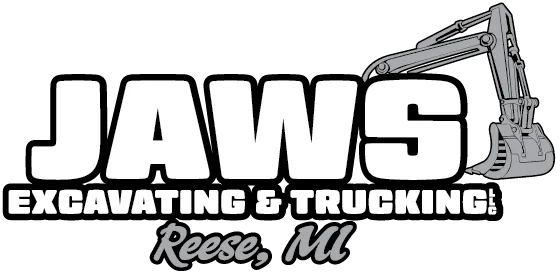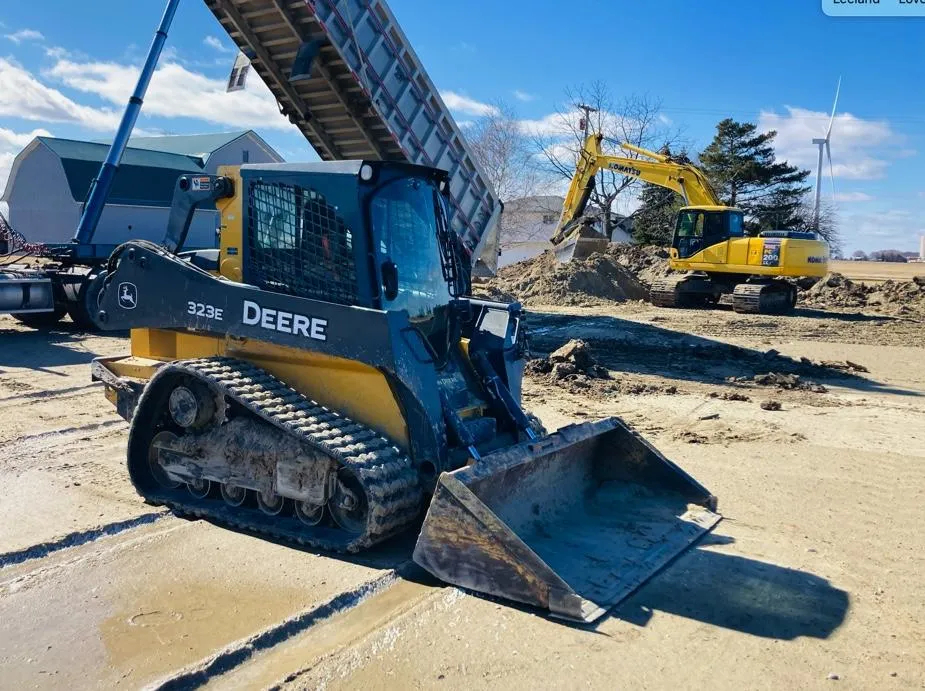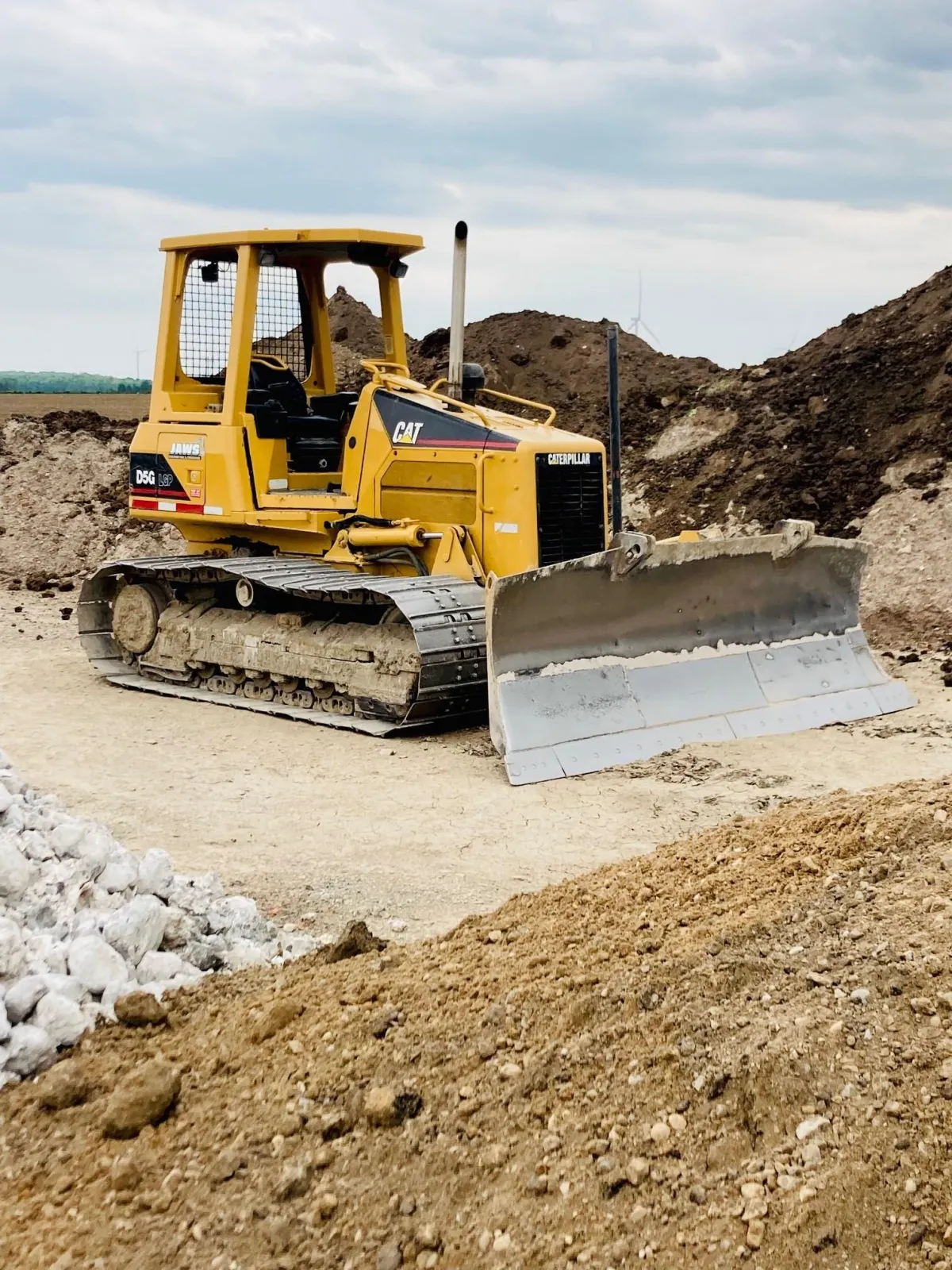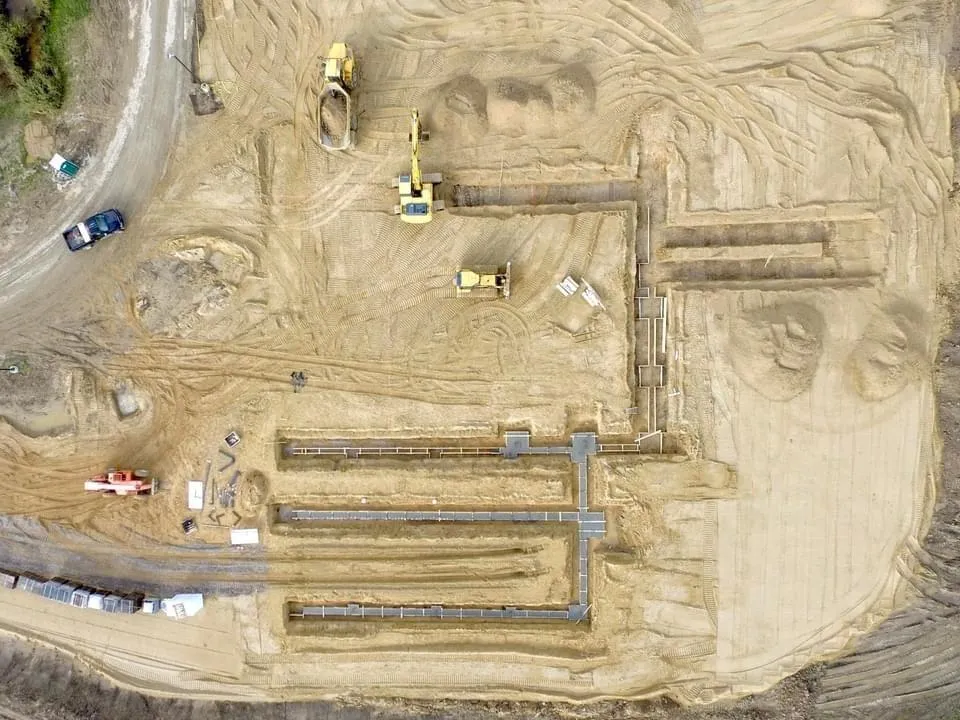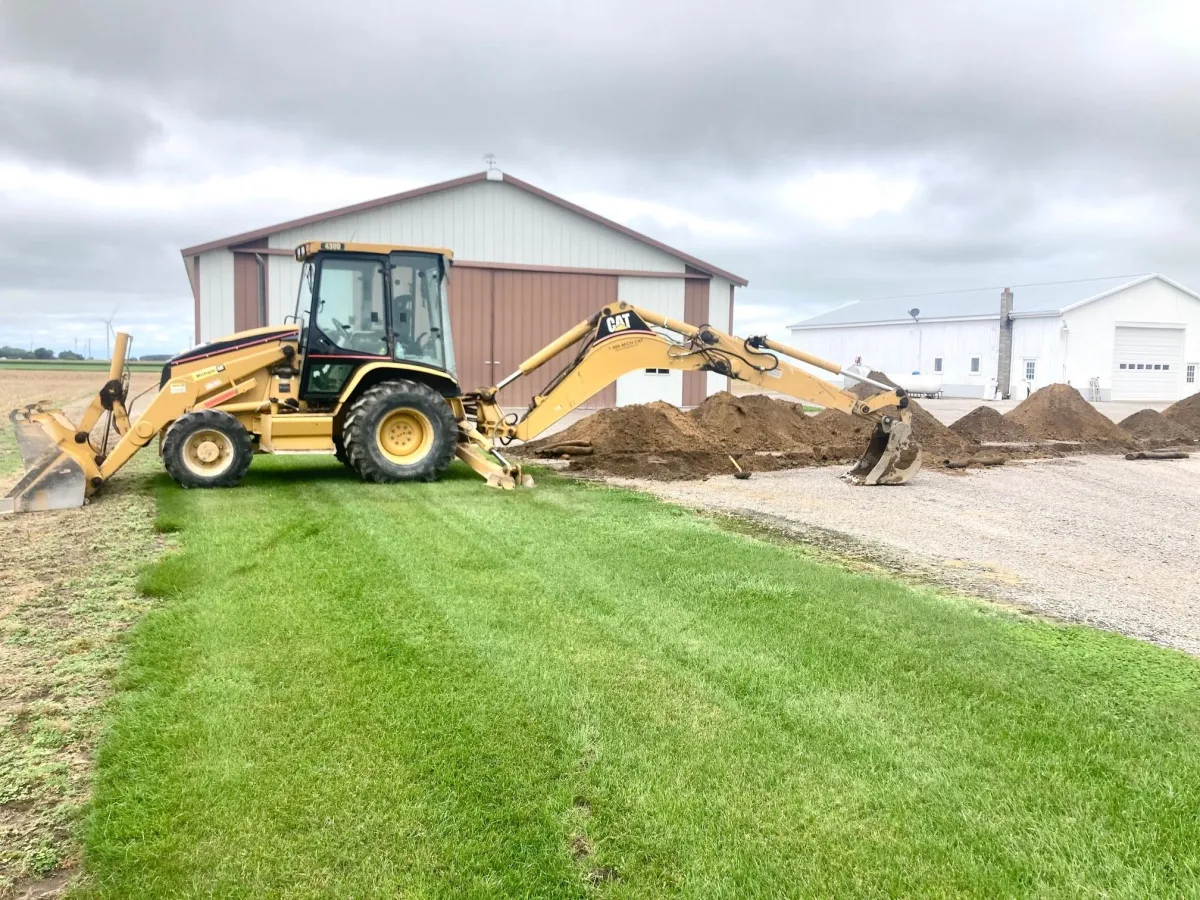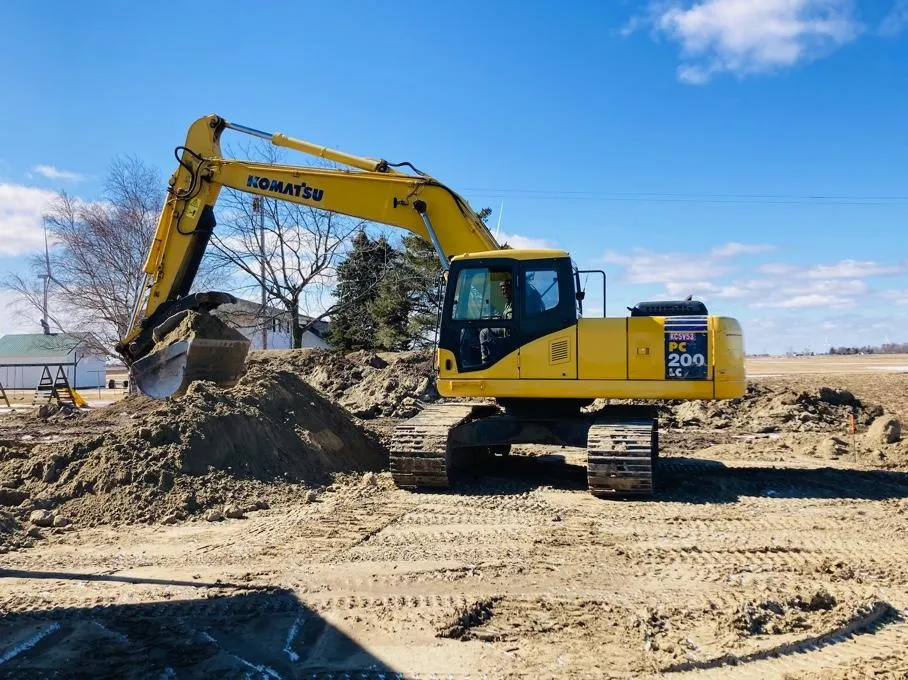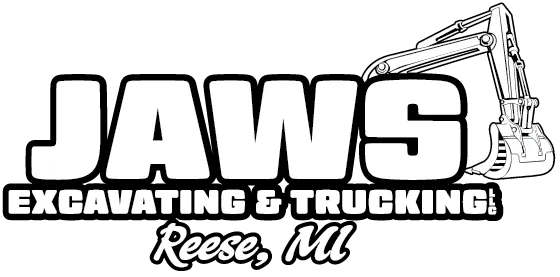Safety | Quality | Guaranteed
Learning Center

Basement & Foundation Excavation Services
The Foundations of Building: A Guide to Basement and Foundation Excavation
Basement and foundation excavation is more than just digging a hole; it’s the first and most critical step in building construction.
Getting this right ensures the building stands firm and safe for years to come.
Today, we're outlining the key techniques and tools used in excavation, highlighting their impact on building stability and safety.
Our goal is to give you a clear picture of the essential role that proper excavation plays in any construction project, setting the stage for a deeper look into the process in the following sections.

Basics of Basement and Foundation Excavation
Basement and foundation excavation is a specialized process that involves removing soil and other materials to create space for building foundations, basements, and other subterranean structures.
This foundational work is crucial as it prepares the site for the construction of a stable and secure structure. The excavation depth and method depend on the building's design, the soil type, and local building codes, which dictate the specifications for a safe build.
In the broader scope of building construction and infrastructure projects, excavation plays a pivotal role. It ensures that the building rests on solid ground, capable of supporting the structure's weight and withstanding environmental stresses such as moisture and temperature changes.
Proper excavation helps prevent future issues like structural damage or foundational shifting, which can lead to costly repairs and safety hazards.
Effective basement and foundation excavation also sets the stage for further construction activities. It involves not only digging but also grading the site, ensuring proper drainage, and preparing for the installation of foundational elements like footings, piers, and slabs.
These steps are integral to building projects ranging from residential homes to large-scale commercial developments.
Pre-Excavation Considerations
Before any excavation work begins, several key steps must be taken to ensure the process is safe, efficient, and compliant with all relevant regulations.
This preparatory stage is critical for the success of the project and involves thorough site assessment, adherence to legal requirements, and meticulous planning and design.
Site Assessment
The first step in pre-excavation is a comprehensive site assessment. This includes soil testing to determine the soil type, composition, and stability, which influences the excavation strategy and construction approach.
Understanding local geological conditions, such as the presence of groundwater or fault lines, is also essential to avoid unexpected complications during construction.
Legal Requirements
Navigating the legal landscape is equally crucial. This involves securing all necessary permits required to commence excavation work.
Builders must adhere to local building codes and regulations that dictate various aspects of construction, including excavation depth, the type of support structures required, and safety measures. Compliance not only ensures safety but also prevents legal disputes and fines.
Planning and Design
Integrating architectural and engineering plans is the next step. Coordination ensures that the excavation aligns perfectly with the overall building design.
Effective planning considers future needs, potential obstacles, and the integration of building utilities, which are laid out during the excavation phase.
Detailed plans help streamline the excavation process, reducing the risk of costly errors and delays.
Types of Excavation Techniques
A variety of excavation techniques are employed in the construction of basements and foundations, each suited to different types of buildings and soil conditions. Understanding these methods and their respective advantages and challenges is crucial for selecting the most effective approach.
Open Pit Excavation
Open pit excavation is one of the most common techniques used when the depth of the excavation is relatively shallow and the area is large. It involves removing large amounts of soil and rock to create a single, large pit. This method is beneficial for its simplicity and cost-effectiveness but can be challenging in urban areas where space and safety regulations restrict large-scale digging.
Trenching
Trenching is used to create narrow excavations that are deeper than they are wide. This technique is ideal for laying the foundations of walls or installing utility lines. Trenching allows for precise excavation but can be hazardous due to the risk of collapses. Proper shoring up of trench walls is essential for safety.
Caisson Excavation
Caisson excavation is used to form deep foundations, especially in watery or unstable soils. This method involves digging cylindrical holes in the ground and filling them with concrete to form solid bases for structures like bridge piers and skyscrapers. Caissons provide excellent structural stability but are complex and costly due to the precision and materials required.
Equipment and Tools Used
The success of any excavation project largely depends on the correct selection and use of construction equipment. Here’s an overview of the essential machinery and tools used for basement and foundation excavation, along with tips for selecting the right equipment based on the soil type and project scale.
Essential Machinery
Excavators: These are pivotal for digging, lifting, and removing earth. Their size and power can vary, making them suitable for a range of tasks from large-scale commercial projects to smaller residential jobs.

Bulldozers: Known for their impressive pushing power, bulldozers are used to clear the site, grade the land, and push large quantities of soil.

Backhoes: Combining the functions of an excavator and a loader, backhoes are versatile machines used for digging, backfilling, and loading.

Selecting the Right Equipment
Choosing the appropriate machinery involves understanding the project's demands:
Soil Type: Heavy clay or rocky soils may require more robust equipment with greater power and durability, such as large excavators and rock breakers.
Project Scale: Large projects might necessitate a fleet of heavy machines, including multiple bulldozers and dump trucks for earth moving. Conversely, smaller projects can often be managed with compact excavators and mini loaders.
Access and Space Constraints: Urban projects with limited space might benefit from smaller, more maneuverable machinery to navigate tight spaces.
Additional Tools
Aside from heavy machinery, various smaller tools are also essential:
Tampers: Used for compacting soil in trenches and around foundations.
Laser Levels: Critical for ensuring that excavations are level and meet design specifications.
Safety Gear: Helmets, gloves, and other personal protective equipment to ensure the safety of all personnel on site.
Managing Excavation Challenges
Excavation projects come with their share of challenges, which can vary significantly depending on the site conditions and the nature of the project. Here are some of the most common challenges encountered during basement and foundation excavation, along with effective solutions and preventive measures.
Water Intrusion
Water intrusion can be a major issue, especially in areas with high groundwater levels or during rainy seasons.
Solutions: Installing dewatering systems such as sump pumps or wellpoints can help manage and lower groundwater levels around the excavation site. Providing adequate drainage and using waterproof barriers can also prevent water from compromising the excavation and foundation areas.
Unstable Soil
Unstable soil conditions can risk the structural integrity of the excavation and ultimately, the foundation itself.
Solutions: Soil stabilization techniques, such as using geotextiles or chemical stabilizers, can enhance soil strength and stability. Another approach is the use of shoring and underpinning to support the excavation walls during the digging process.
Nearby Structures
The presence of adjacent buildings and infrastructure can pose risks during excavation, including the potential for structural damage due to vibrations or collapse.
Solutions: Conducting thorough surveys and using vibration monitoring equipment can help minimize the impact on nearby structures. Employing controlled excavation techniques and reinforcing existing structures with temporary supports can also mitigate risks.
Preventive Measures
To avoid or minimize these challenges, it is crucial to engage in careful planning and risk assessment before the project begins. This includes:
Conducting detailed geological surveys to understand the site conditions thoroughly.
Designing a comprehensive site-specific safety and management plan that addresses potential risks and includes contingency measures.
Regularly monitoring the site conditions and adjusting the excavation approach as needed to respond to any changes effectively.

Cost Factors and Budgeting
Understanding and managing the costs associated with basement and foundation excavation is essential for ensuring that construction projects stay within budget while achieving the desired outcomes. This section explores the various cost determinants in excavation and provides advice on how to budget effectively.
Cost Determinants
Several factors can significantly influence the costs of excavation projects:
Soil Condition: Tough, rocky, or unstable soils require more specialized equipment and methods, which can increase costs.
Depth and Size of Excavation: Larger and deeper excavations require more time, labor, and machinery, all of which contribute to higher costs.
Accessibility and Location: Projects in remote or densely urbanized areas might face higher transportation costs for machinery and materials. Limited access can also complicate the excavation process, adding to the expense.
Regulatory Requirements: Compliance with local regulations may necessitate additional procedures like environmental assessments or specific construction methods, which can increase project costs.
Budgeting Advice
To budget effectively for an excavation project, consider the following strategies:
Detailed Planning: Before beginning the excavation, ensure a thorough planning phase that includes precise measurements and realistic assessments of necessary resources. This can help avoid unexpected costs arising from project changes or delays.
Get Multiple Estimates: Obtain quotes from several contractors to compare prices and service offerings. This can also provide a more comprehensive understanding of the potential costs involved.
Contingency Funds: Always include a contingency fund in your budget. Typically, 10-20% of the total budget is recommended to cover unexpected expenses that may arise during the excavation process.
Regular Monitoring: Continuously monitor expenses throughout the project to ensure costs are aligning with the budget. Adjustments may be necessary if the project begins to exceed expected expenditures.
Efficient Resource Management
Maximizing resource efficiency can also help control costs:
Opt for renting equipment instead of purchasing it if the machinery will not be needed long term.
Employ skilled labor that can operate efficiently with minimal errors or rework.
Use materials and methods that offer durability and longevity, potentially reducing future maintenance costs.

Choosing the Right Excavation Service Provider
Selecting a competent and reliable excavation contractor is critical to the success of any basement and foundation project. This section provides practical tips for choosing the right service provider and highlights the importance of references, reviews, and a proven track record.
Tips on Selecting a Contractor
Experience and Expertise: Look for contractors who specialize in excavation and have extensive experience with projects similar to yours. Their expertise will be invaluable in navigating complex challenges and ensuring quality workmanship.
Licensing and Insurance: Ensure the contractor is licensed to perform excavation work and carries adequate insurance. This protects you legally and financially in case of accidents or damage during the project.
Equipment and Crew: Assess the contractor’s equipment and personnel. A well-equipped contractor with a skilled crew is more likely to complete your project efficiently and to high standards.
Communication and Professionalism: Choose a contractor who communicates clearly and professionally. Regular updates and a transparent approach to addressing issues are good signs of a dependable provider.

Importance of References and Reviews
Client Testimonials: Ask for references and contact past clients to inquire about their experiences with the contractor. Client testimonials can provide insights into the contractor’s reliability, adherence to timelines, and quality of work.
Online Reviews: Check online reviews and ratings on platforms like Google, Yelp, or industry-specific sites. Reviews can reveal patterns of behavior, such as how the contractor handles disputes or project challenges.
Proven Track Record: Consider contractors with a proven track record of success. Look for portfolios that showcase previous projects, which can demonstrate their capability and quality of work.
Making the Final Decision
Get Multiple Bids: Obtain bids from several contractors to compare cost, scope, and timelines. This can also give you a better sense of the market rate and what each contractor offers.
Interview Potential Contractors: Meeting face-to-face or via a virtual meeting can help you gauge the contractor’s professionalism and their suitability for your project. This is also an opportunity to ask detailed questions about their approach and processes.

Conclusion
From understanding the basic excavation techniques to addressing the advanced equipment needed, we've covered the essential groundwork required for successful construction projects. We dove into the challenges commonly faced during excavation, such as water intrusion and unstable soil, and discussed how these can be managed effectively. Additionally, we provided insights into the critical cost factors and offered practical advice for budgeting that can help prevent financial overruns.
One of the most crucial elements we emphasized is the importance of choosing the right excavation service provider. As we highlighted, selecting a contractor with the right expertise, a proven track record, and positive reviews is vital for ensuring the structural integrity and success of your construction project.
Final piece of advice
Ensure Comprehensive Pre-Planning and Maintain Vigilant Oversight
Before breaking ground on any excavation project, invest considerable time in comprehensive pre-planning.
This includes conducting detailed site assessments, understanding all regulatory requirements, and meticulously designing your approach based on the specific conditions of your project site.
Equally important is choosing a skilled and reliable excavation contractor who aligns with your project's needs and values.
Once the project is underway, maintain vigilant oversight to promptly address any issues that arise, ensuring that every phase of the excavation is executed according to plan. This proactive approach minimizes risks, avoids costly mistakes, and ensures the foundation you lay is both solid and secure, setting the stage for the successful completion of your construction project.
INVALUABLE EXPERIENCE
JAWS Excavating & Trucking, LLC
Superior communication
Quality work doesn't get done without excellent project communications.
UNMATCHED integrity
We understand that people do business with folks they trust. That's why we guarantee your satisfaction, every single time.
invaluable Experience
You wouldn't hire a mechanic to do your root canal. With us, you can hire with confidence.
UNMATCHED INTEGRITY
SATISFACTION Guaranteed
